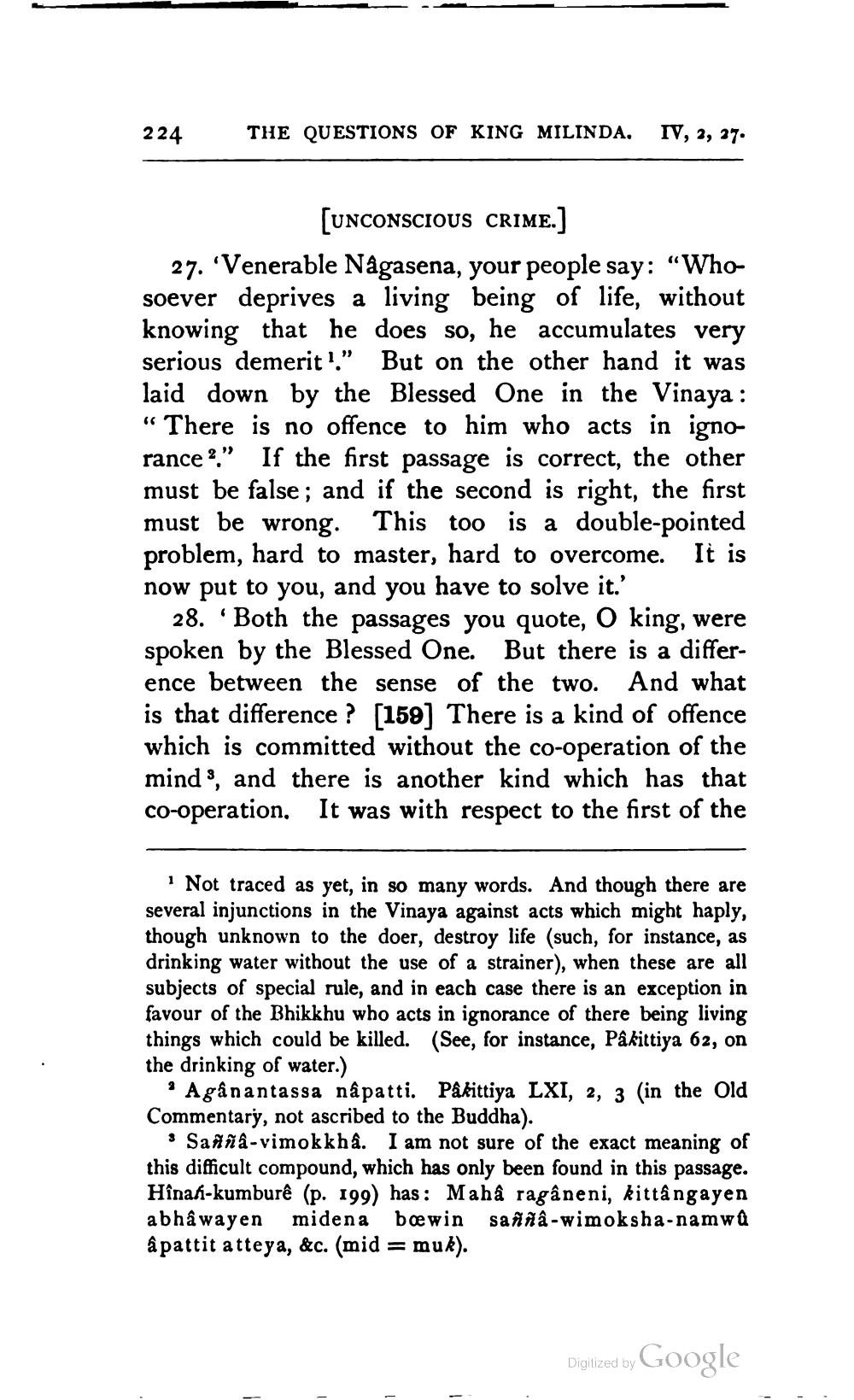________________
224
THE QUESTIONS OF KING MILINDA. IV, 2, 27.
[UNCONSCIOUS CRIME.] 27. 'Venerable Någasena, your people say: "Who soever deprives a living being of life, without knowing that he does so, he accumulates very serious demerit?." But on the other hand it was laid down by the Blessed One in the Vinaya : “ There is no offence to him who acts in ignorance 2." If the first passage is correct, the other must be false; and if the second is right, the first must be wrong. This too is a double-pointed problem, hard to master, hard to overcome. It is now put to you, and you have to solve it.'
28. 'Both the passages you quote, O king, were spoken by the Blessed One. But there is a difference between the sense of the two. And what is that difference? [159] There is a kind of offence which is committed without the co-operation of the mind, and there is another kind which has that co-operation. It was with respect to the first of the
Not traced as yet, in so many words. And though there are several injunctions in the Vinaya against acts which might haply, though unknown to the doer, destroy life (such, for instance, as drinking water without the use of a strainer), when these are all subjects of special rule, and in each case there is an exception in favour of the Bhikkhu who acts in ignorance of there being living things which could be killed. (See, for instance, Pâkittiya 62, on the drinking of water.)
* Agånantassa nâpatti. Påkittiya LXI, 2, 3 (in the Old Commentary, not ascribed to the Buddha).
s Saiña-vimokkhâ. I am not sure of the exact meaning of this difficult compound, which has only been found in this passage. Hînah-kumburê (p. 199) has: Mahâ ragâneni, kittângayen abha wayen midena bewin sanna-wimoksha-namwa â pattit atteya, &c. (mid = muk).
Digitized by
Diglized by Google




